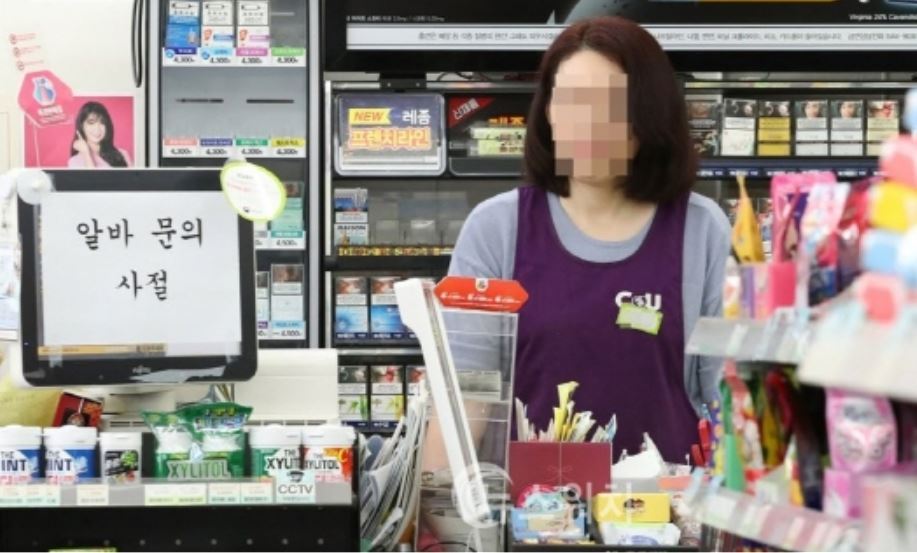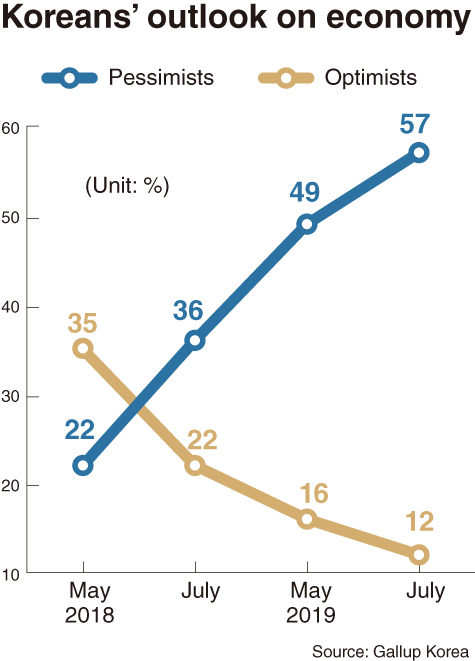SEJONG -- A large proportion of self-employed people have closed their businesses and joined the growing number of jobless people over the past two years. Simultaneously, the state payment of unemployment benefits has climbed to an all-time high.
The Moon government started providing some young jobless people with 3 million won ($2,540) for six months per individual, while the number of people who lost jobs has been drastically increasing among those in their early 50s, 40s and late 30s.
The majority of those owning apartments in Seoul saw their property assets sharply grow since President Moon Jae-in took office in May 2017. Prices of some apartment complexes in southern Seoul soared by 50 to 80 percent -- or by 500 million-1 billion won -- to trade at 1.5 billion-3 billion won per unit in only two or three years.
In contrast, many households that moved from the capital to satellite cities or those residing in Seoul without owning homes face a sense of deprivation due to a drop or standstill in home prices.
 |
The owner of a convenience store in South Chungcheong Province mans the cashier as labor costs rise. The Moon Jae-in government has hiked the minimum wage by 29 percent since taking office in 2017 to reach 8,350 won ($7.10) per hour in 2019. (Yonhap) |
Exports fell for the seventh consecutive month on an on-year basis. Following the drop from December 2018 to June 2019, outbound shipments are projected to contract this month. According to the Korea Customs Service, exports fell 8.3 percent during the Jan. 1-July 10 period on-year.
The 2019 economic growth rate of South Korea could possibly fall to the lowest in the 10 years since 2009, when growth stayed at 0.8 percent as the nation was hit by the global financial crisis.
Amid the overall sagging indices, polls indicate public disappointment in the Moon administration’s economic policies and performance.
According to a survey by Gallup Korea released on Saturday, 57 percent of the 1,000 respondents said economic conditions would worsen in the coming months
This marked the highest figure on a monthly basis since the pollster began compiling the data in September 2017.
This month, only 12 percent predicted economic conditions would improve, which was also a record low. Another 29 percent said the economy ahead would remain roughly the same.
By area, Daegu-North Gyeongsang Province topped the list in the proportion of pessimists, with 79 percent. Seoul ranked second at 64 percent, trailed by Daejeon-Sejong-Chungcheong provinces at 58 percent, Busan-Ulsan-South Gyeongsang Province at 56 percent and Incheon-Gyeonggi Province at 49 percent.
Men exceeded women by 60 percent versus 54 percent in the pessimistic outlook on the economy.
By job, 73 percent of self-employed respondents picked a worsening economy in the coming months, followed by the blue-collar workers at 61 percent, homemakers at 59 percent, white-collar workers at 46 percent and students with 44 percent.
The percentage of people who expressed a pessimistic and optimistic outlook was 49 percent and 15 percent, respectively, in June, according to a survey by the same pollster.
One year ago in July 2018, the percentage of pessimists and optimists were 22 percent and 36 percent, respectively, Gallup Korea data showed.
 |
(Graphic by Han Chang-duck/The Korea Herald) |
In addition, the poll conducted this month showed that 57 percent of the 1,000 respondents said the number of jobless Koreans would increase, while only 15 percent forecast a drop.
Concerning labor-management relations, 61 percent of respondents predicted an increase in the number of dispute cases between the two parties. Only 7 percent expected a decrease in labor-management conflicts.
More and more online commenters have raised the possibility that the income disparity between the haves and have-nots will widen. They say that fairness and justice in this society pledged by President Moon is a long way off.
A commenter spoke out against the administration’s approach to financial support for the young jobless. He said, “It is certainly acceptable if the government supports the underprivileged like seniors living alone and child breadwinners. But why do salaried workers have to pay for other ordinary citizens, who have no intention of working?”
A research analyst in Seoul said that conglomerates have not been affected much by the radical minimum wage hikes.
“The unreasonable hikes dealt a severe blow to small-scale businesses, including the self-employed,” he said.
By Kim Yon-se (
kys@heraldcorp.com)









